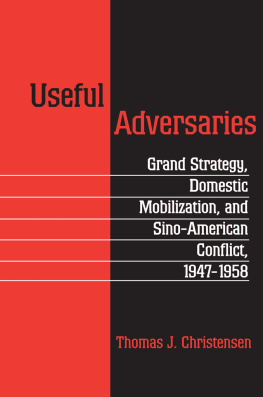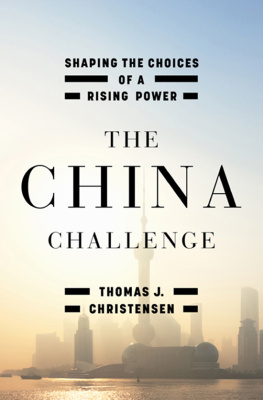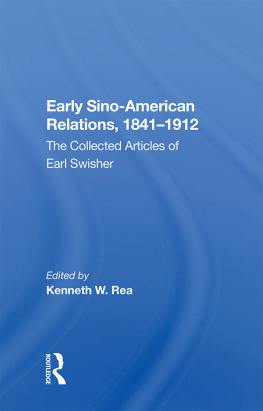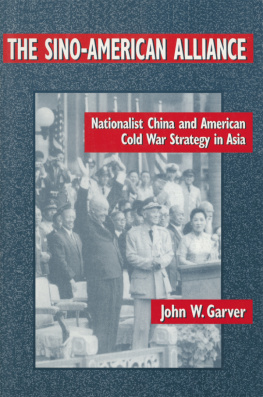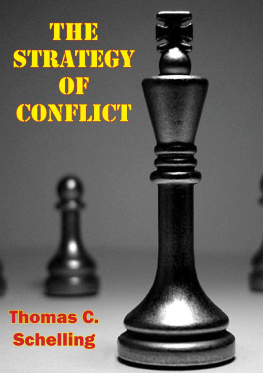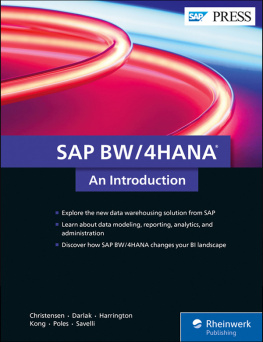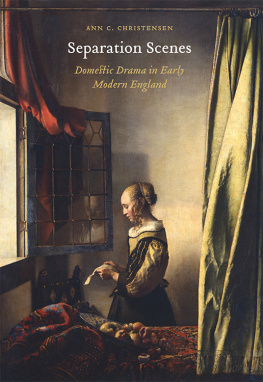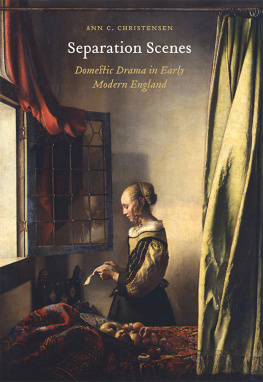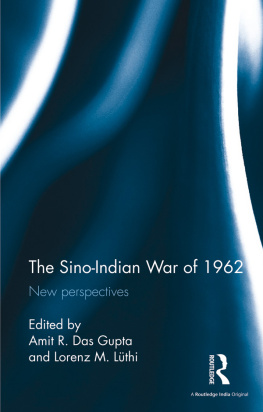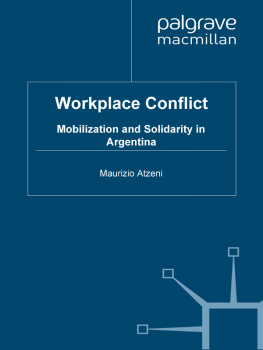USEFUL ADVERSARIES
PRINCETON STUDIES IN INTERNATIONAL HISTORY AND POLITICS
Series Editors
Jack L. Snyder
Richard H. Ullman
History and Strategy by Marc Trachtenberg (1991)
George F. Kennan and the Making of American Foreign Policy, 19471950
by Wilson D. Miscamble, c.s.c (1992)
Economic Discrimination and Political Exchange: World Political Economy in the 1930s and 1980s
by Kenneth A. Oye (1992)
Whirlpool: U.S. Foreign Policy toward Latin America and the Caribbean
by Robert A. Pastor (1992)
Germany Divided: From the Wall to Reunification
by A. James McAdams (1992)
A Certain Idea of France: French Security Policy and the Gaullist Legacy
by Philip H. Gordon (1993)
The Limits of Safety: Organizations, Accidents, and Nuclear Weapons
by Scott D. Sagan (1993)
Mercenaries, Pirates, and Sovereigns: State-Building and Extraterritorial Violence in Early Modern Europe
by Janice E. Thomson (1994)
We All Lost the Cold War
by Richard Ned Lebow and Janice Gross Stein (1994)
Who Adjusts? Domestic Sources of Foreign Economic Policy during the Interwar Years
by Beth A. Simmons (1994)
Americas Mission: The United States and the Worldwide Struggle for Democracy in the Twentieth Century
by Tony Smith (1994)
The Sovereign State and Its Competitors: An Analysis of Systems Change
by Hendrik Spruyt (1994)
Cooperation among Democracies: The European Influence on U.S. Foreign Policy
by Thomas Risse-Kappen (1995)
The Korean War: An International History
by William Stueck (1995)
Cultural Realism: Strategic Culture and Grand Strategy in Chinese History
by Alastair Iain Johnston (1995)
Does Conquest Pay? The Exploitation of Occupied Industrial Societies
by Peter Liberman (1996)
Satellites and Commissars: Strategy and Conflict in the Politics of Soviet-Bloc Trade
by Randall W. Stone (1996)
Useful Adversaries: Grand Strategy, Domestic Mobilization, and Sino-American Conflict, 1947-1958
by Thomas J. Christensen (1996)
USEFUL ADVERSARIES
GRAND STRATEGY,
DOMESTIC MOBILIZATION,
AND SINO-AMERICAN
CONFLICT, 19471958
Thomas J. Christensen
PRINCETON UNIVERSITY PRESS PRINCETON, NEW JERSEY
Copyright 1996 by Princeton University Press
Published by Princeton University Press, 41 William Street,
Princeton, New Jersey 08540
In the United Kingdom: Princeton University Press,
Chichester, West Sussex
All Rights Reserved
Library of Congress Cataloging-in-Publication Data
Christensen, Thomas J., 1962
Useful adversaries : grand strategy, domestic mobilization, and Sino-American conflict, 19471958 / Thomas J. Christensen.
p. cm. (Princeton studies in international history and politics)
Includes bibliographical references (p. ) and index.
ISBN 0691-02638-6 (acid-free paper). ISBN 0-691-02637-8 (pbk. acid-free paper)
1. United StatesForeign relationsChina. 2. ChinaForeign relationsUnited States. 3. United StatesForeign relations19451953. 4. United States
Foreign relations19531961. I. Title. II. Series.
E183.8.C5C558199796-8082
327.51073dc20 CIP
eISBN 978-0-691-21332-3
R0
TO THE MEMORY OF MY PARENTS
Henry N. and Elvira F. Christensen
Figures and Tables
FIGURES
TABLES
Preface
I BEGAN THINKING about the theoretical problems at the heart of this book when I studied with Professors Chong-Sik Lee and Avery Goldstein at the University of Pennsylvania. They taught that there was no necessary separation between theoretical argumentation and area studies expertise. They also convinced me that, to understand the international relations of East Asia, one needs to study the relations of the great powers in Europe.
The most important years in my education were spent at Columbia University, where I wrote the doctoral dissertation from which the book is derived. I developed the theoretical sections under the tutelage of Professors Robert Jervis and Jack Snyder. Their intelligence, generosity, and open-minded approach to teaching have provided the yardstick by which I will measure my own career in academia. I am particularly grateful to Professor Snyder, who cheerfully responded to countless requests for help despite his busy schedule. I was also fortunate to have studied at Columbia under two of the worlds leading specialists in Chinese politics: Professors Thomas Bernstein and Andrew Nathan. Their expert guidance was crucial to my development as a student of Chinese politics and foreign policy. They not only provided useful critiques of my written work but also went the extra mile to help me in ways that China specialists especially appreciate: writing letters of introduction, assisting in obtaining travel grants, and offering sound, realistic advice on how to carry out field research in the Peoples Republic of China.
For general guidance during my graduate school years, I also thank Professors David Baldwin, Francine Frankel, Frederich Frey, Joanne Gowa, Eugene Liu, Irene Liu, Helen Milner, Alexander Motyl, Carl Riskin, Robert Shapiro, and Peter Swenson. The fellow graduate students at Columbia who have helped me are too numerous to name. I particularly thank two, Randall Schweller and Jonathan Mercer, both of whom have been true friends and available colleagues in all phases of my professional life. Throughout college and graduate school, my sister, Nancy Hall, provided encouragement and a place to stay in New York. Along with Jennifer Camille Smith, she patiently critiqued my writing. If the reader is able to grasp the basic arguments of the book, they deserve much of the credit.
In addition to my advisers, the following people read entire drafts of the dissertation or book manuscript and offered invaluable comments: Robert Art, Chen Jian, Peter Katzenstein, Jonathan Kirshner, Walter LaFeber, Robert Ross, Anders Stephanson, Allen Whiting, and Donald Zagoria. I consider it a great privilege that a group as accomplished as this paid such careful attention to my work.
For generous financial and institutional support I thank the Social Science Research Council/MacArthur Fellowship Program in International Peace and Security. For guidance during the fellowship I am grateful to Professors Judith Reppy and Michel Oksenberg. From 1991 to 1993 I also had the great fortune to be a National Security Fellow at the Olin Institute for Strategic Studies at Harvard Universitys Center for International Affairs. For their guidance and generosity I particularly thank Professors Samuel Huntington and Stephen Rosen.
For helpful critiques, comments, and advice I also thank Richard Bensel, Thomas Berger, Andrew Cortell, Bruce Elleman, John Gaddis, John Garafano, Merle Goldman, Roger Hilsman, Hu Weixing, Ethan Kapstein, Robert Keohane, Yuen Foong Khong, Elizabeth Kier, Alastair Iain Johnston, Li Hong, Peter Liberman, Sean Lynn-Jones, Roderick MacFarquhar, James McAllister, Alexandre Mansourov, Walter Mebane, Andrew Moravcsik, Timothy Naftali, Niu Jun, Joseph Nye, Sally Paine, Bruce Porter, Gideon Rose, Alan Rousso, David Rowe, Michael Schoenhals, Benjamin Schwartz, Karel Sedlacek, Vivienne Shue, Charles Sorrels, William Stokes, Shibley Telhami, Xu Yan, and Fareed Zakaria. Dennis Bilger of the Truman Library and Nancy Hearst of the Fairbank Center Library at Harvard were also of great assistance. Malcolm DeBevoise, Beth Gianfagna, Malcolm Litchfield, and Janet Mowery offered expert editorial advice. John Park and Li Hong provided invaluable assistance in the copyediting phase. Matthew Rudolph assisted in compiling the index.

